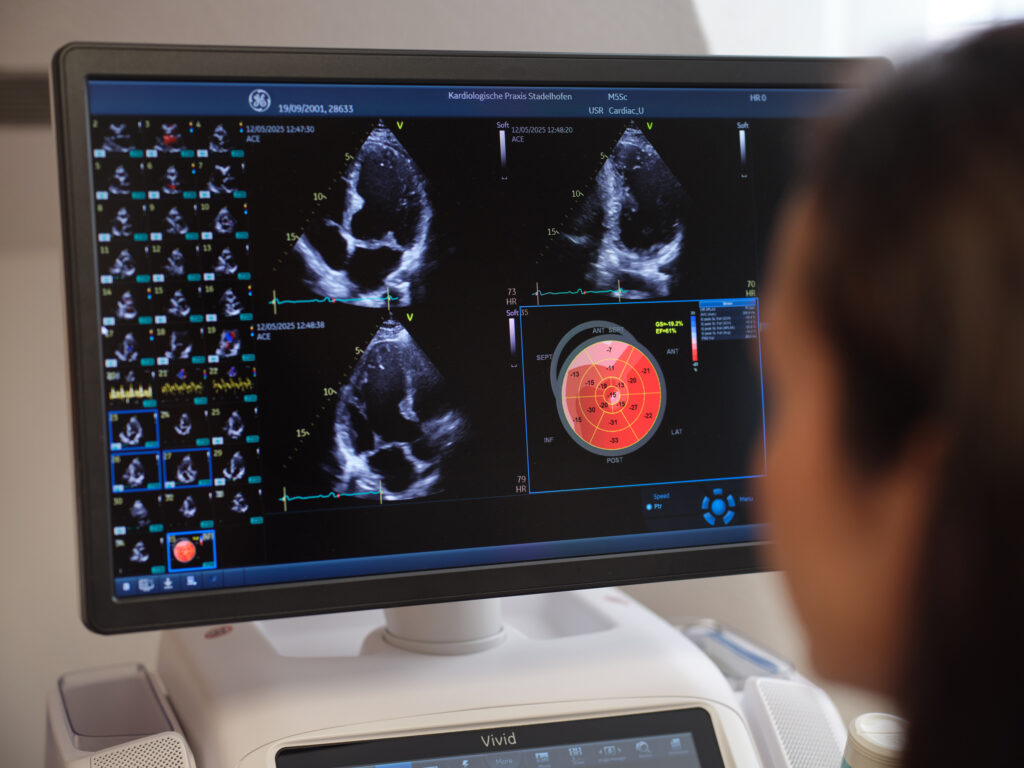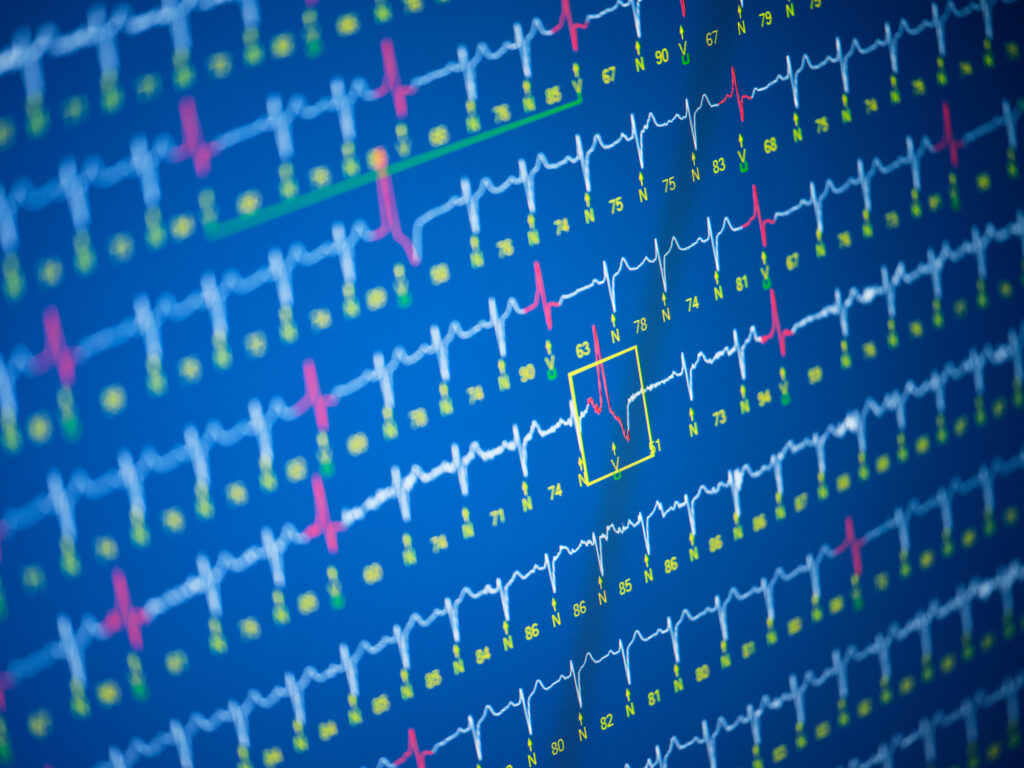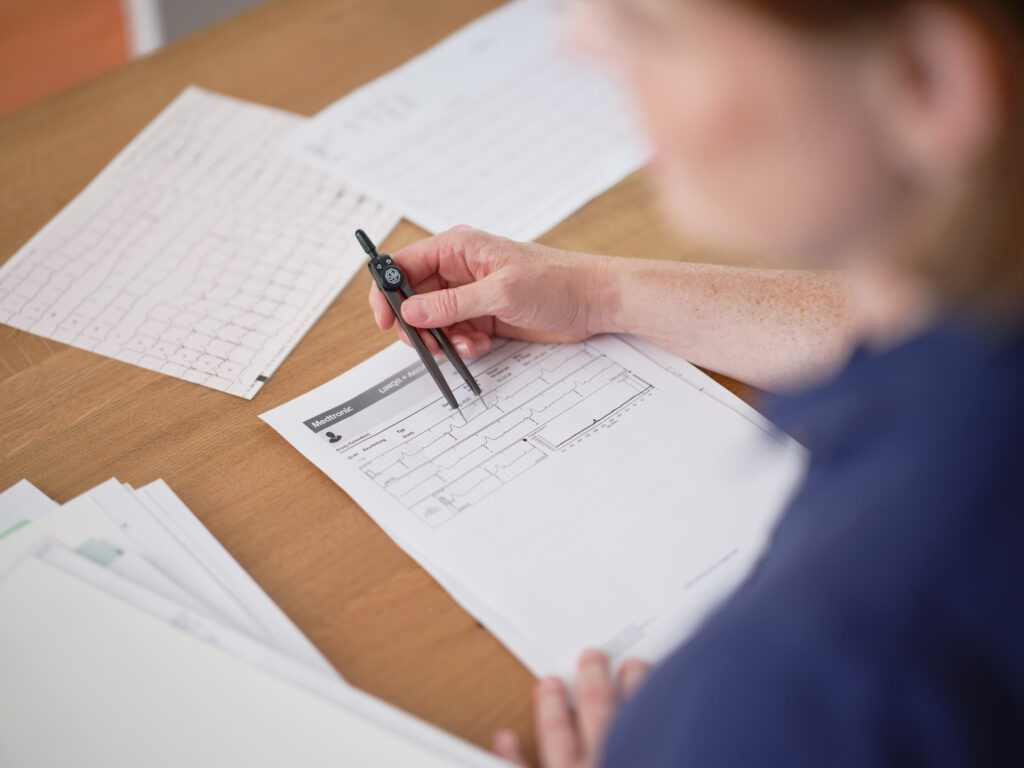


This includes the treatment of patients
after heart attacks/stent implantation
after heart surgery (bypass surgery, heart valve replacement)
with cardiac arrhythmias (e.g. atrial fibrillation)
heart failure (cardiac insufficiency)
diseases of the heart valves, aorta, or
high blood pressure.
In addition, we offer sports cardiology counseling for recreational and professional athletes:
How can I exercise even if I have heart disease?
Do you experience symptoms when exercising?
Are you fit for training and/or competition?
Training-induced athlete's heart or pathological changes?
The detection and treatment of heart muscle diseases such as hypertrophic cardiomyopathy or storage diseases is also guaranteed at a high level.
The prevention of cardiovascular diseases through early detection and treatment of risk factors in cooperation with referring family doctors complements the services offered by the clinic.